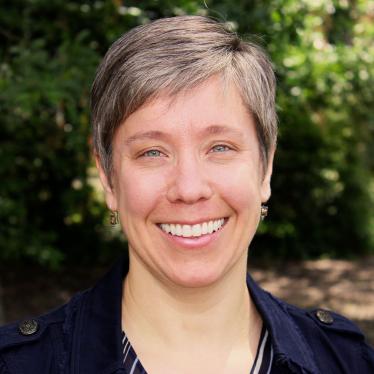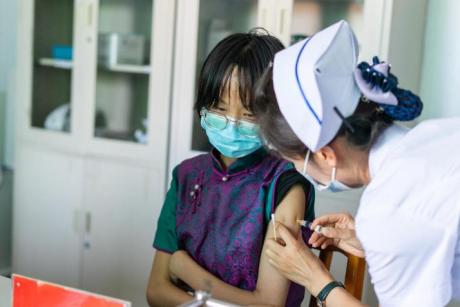Melissa Marchese knows exactly when she no longer felt like an undergraduate student. It was summer 2021, when she was doing research as a second-year student in DGHI’s Accelerated Master of Science in Global Health program.
“It was not until after I graduated [from undergraduate studies] that I realized I was actually responsible for designing and implementing a project, rather than just assisting and participating in it,” says Marchese. “In undergrad, I was often told exactly what to do in lab and why. I understood the rationale for our experimental design but seldom had to arrive at it on my own.”
Now, Marchese, who graduated with a degree in environmental science and policy from Duke, is training and mentoring an undergraduate student.
“As [an MS-GH] student, I became responsible for making major decisions about my project. My principal investigator was asking me what I wanted to do,” she says. “I gained a lot of independence in a short period of time, and I’m extremely grateful for this opportunity because I would never have experienced it in undergrad.”
Marchese, from Florida, is one of three current Accelerated MS-GH students. She’s joined by fellow second-year Arthi Kozhumam, from Texas who doubled majored in Biology and Global Health as a Duke undergrad. Parker Frankiewicz is a first year in the program, double majoring in neuroscience and global health. The accelerated program allows Duke undergraduates majoring or minoring in global health to earn their bachelor’s and master’s degree in five years. Accepted students begin their first year of graduate studies during their senior year.
The program’s structure is one reason why the three students applied.
Frankiewicz took a global mental health class during her sophomore year and loved the way it merged her interests. It also paired perfectly with her job as a part-time EMT with Orange County’s South Orange Rescue Squad. Like her EMT work, she says the accelerated program is fast-paced and immersive, with courses geared toward self-teaching and specialized subject matter.
“They’re not going to test your desire to be here with busy work when all your introductory classes are like that,” says Frankiewicz. “You are there to learn, and everything builds towards that. I’m getting to take classes I really enjoy.”
Frankiewicz aspires to work as a physician who researches health program implementation with a focus on improving health outcomes and prevention. She says the accelerated program allows her to continue learning without pause as she prepares to apply to medical school.
“This is going to prepare me to be an active participant in science and academic research, no matter where I am,” she says.
Marchese, Frankiewicz and Kozhumam all agree coupling their senior year and first year of MS-GH, followed by a thesis defense in their second year, is difficult, but can birth impactful work. Kozhumam is researching pediatric time-sensitive emergency conditions in low-resource settings. Currently, she works in the Global Emergency Medicine Innovation and Implementation Research (GEMINI) Lab, which mentors students in clinical or global health research. In September, Kozhumam co-authored a paper published in the Lancet Regional Health Americas journal on access to time-sensitive emergency care in Brazil.
“I felt another year studying Global Health prior to matriculating would expand my skill set further and allow me to figure out what I wanted to focus my research on as a physician,” says Kozhumam. “I hope to become a global health physician-scientist, and am pursuing medical school.”
The accelerated program, launched in 2019, has produced two graduates. As the current students prepare to follow the same path, they shared advice for those interested in the program. Frankiewicz encouraged students to speak with program alumni about their experience and know the requirements, allowing them more flexibility in the courses they take at the graduate level.
Marchese said students need to be sure the program will serve them and their future goals rather than act as a placeholder between undergrad and graduate degrees. Some people wondered why she would want to take on extra work during her final year of undergraduate studies, worried that might keep her from enjoying her senior year. But that wasn’t the case at all, she says.
“I did spend a lot of time on research, but I had fun too,” says Marchese. “If you’re interested in the program, you should learn more about it and don’t let others discourage you without good reason. I am so happy I stuck with it.”
Learn More
For more information about the Accelerated MS-GH program, contact DGHI’s Assistant Director for Curricular and Student Affairs Laura Bey.

Laura Bey
Senior Associate Director for Academic & Student Affairs



